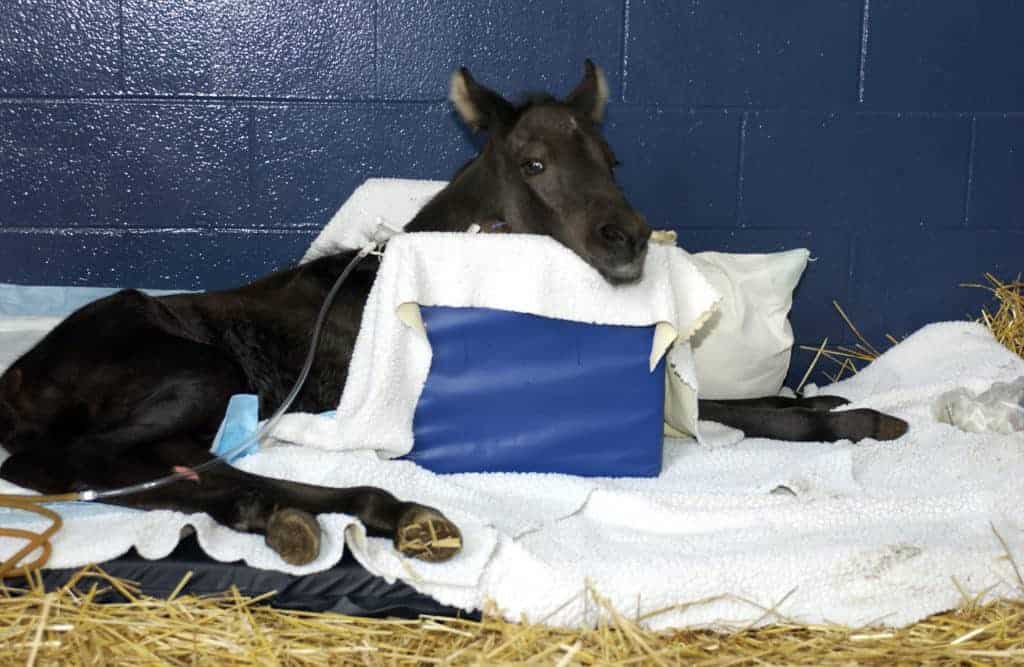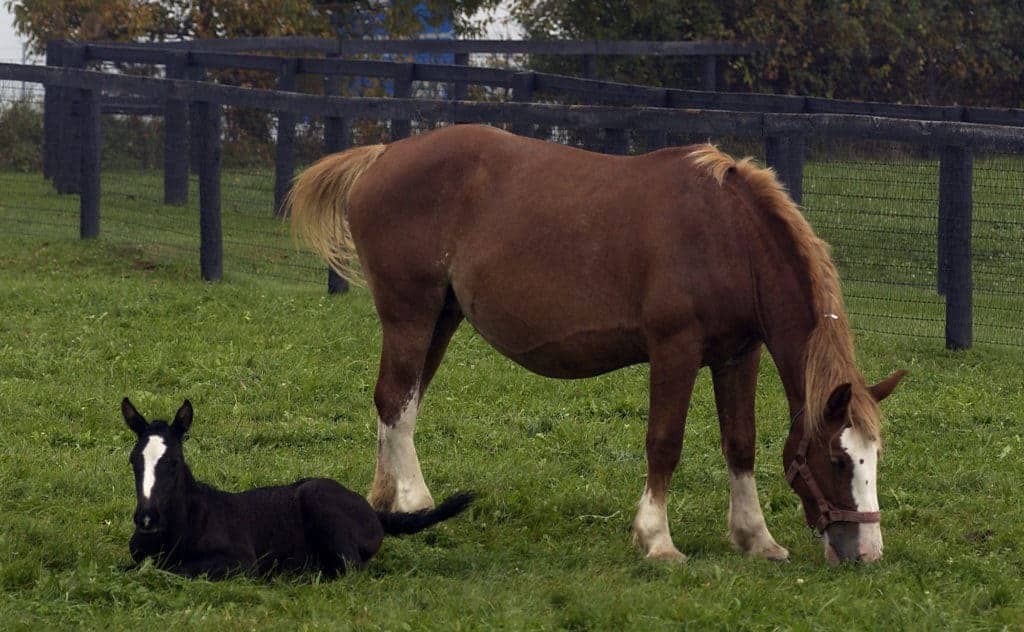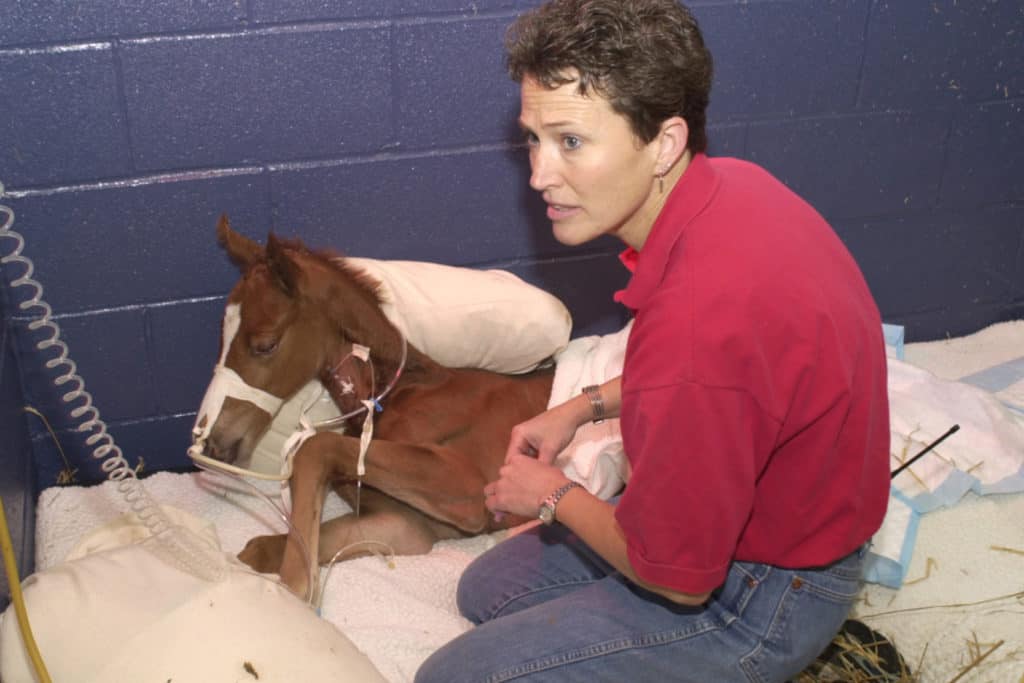Imprint Training and Future Performance
Dr. Sue McDonnell answers a reader’s quesion about foal imprint training.
Dr. Sue McDonnell answers a reader’s quesion about foal imprint training.
Foals are small enough to fit in the gantry of a CT machine, which is helpful in assessing lung disease.

Meconium impaction, ulcers, diarrhea, and other GI problems can arise in foals.
Craig N. Carter, DVM, PhD, Dipl. ACVPM, received a prestigious award at the 2011 AVMA Convention.
Why should foals eating feces be classed as normal behavior when the foal is obviously lacking some nutrient?
Study revealed that exposure equine proliferativ enteropathy’s causative bacterium can continue into March…

In the last two months of a high-risk pregnancy, this technique can help determine whether the unborn foal is healthy.

One of the most dangerous organisms that can sicken horses is the bacterium Clostridium difficile.
Foals should start a course of vaccinations as soon as the antibody levels obtained from the mare’s colostrum
Prevention and monitoring strategies for equine proliferative enteropathy, a disease that affects weanlings
Equine proliferative enteropathy, a gastrointestinal disease of foals and weanlings that’s increasing in
Nothing disrupts the joy of foal ownership like the observation of potential problems: A disinterest in nursing, a depressed attitude, strange mannerisms, or seizures could mean a foal is suffering from some serious neurologic problems. During a
There’s nothing more heart-wrenching than watching a newborn foal fight for his life.
The immune system allows humans and animals including horses to survive in a complex world filled with harmful bacteria and viruses that can use our bodies for nourishment and reproduce within us. The immune system protects us from those organisms
A nursing foal’s nutritional requirements will exceed his dam’s ability to supply nutrients a few months after birth, making creep feeding a good way to get the young horse off on the right hoof.

Update on Rhodococcus equi pneumonia in foals by Drs. Noah Cohen of Texas A&M University, Steeve Giguere of the University of Georgia, and M. Julia B. Felippe of Cornell University. (Presented at the 2010 AAEP convention)
Stay on top of the most recent Horse Health news with
"*" indicates required fields